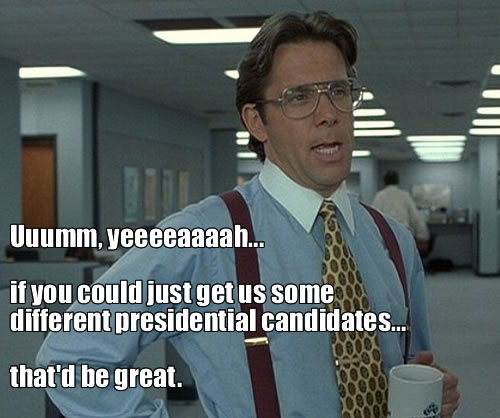John Sides posts a necessary and timely corrective to those commentators hyperventilating over some alleged “realignment”:
For a realignment to occur, there has to be a dramatic and permanent shift in the party coalitions. That shift then ushers in an extended period of party control, which in turn brings with it a notable shift in policy. ... [T]here is little evidence that the 2008 election constitutes a realignment. Why?
* First, even if it did, we wouldn’t know for a while. Years, in fact. As Andrew Busch writes here, “No one can tell whether a particular election is a realigning election until the long-term arrives and one can look back.”
* Second, things didn’t change that much. This is why I posted the maps below. Yes, Obama won states that Democrats hadn’t won in a while, and perhaps demographic trends suggest Democrats will have a chance to win those states in the future. But these small shifts in state-level vote margins don’t signal any wholesale change in partisan loyalties or party coalitions.
* Indeed, if you look at the exit polls (see Phil’s earlier post), Obama does better than Kerry among most every demographic. His vote share among the young and Latinos stands out, but the results don’t suggest a reordering of the party’s coalitions. Instead, it looks more like voters of all stripes were displeased with the economy and President Bush and so voted for the opposing party’s nominee.
* The final nail in the coffin is this analysis from Larry Bartels. He compares the 2008 results in each state to the 2004 results. He finds remarkable continuity across these two elections. His further comparison of 2008 to 1932, where you in fact do see big shifts, is further evidence.
Sides also points out that “the concept of realignment isn’t in such good standing anymore,” which is true, although largely because (a) not everybody has been willing to concede that the 1960s saw a realignment in electoral politics due to the reenfranchisement of African-Americans and the connected emergence of the two-party south and (b) the whole concept of “dealignment” had to arise around the same time and substantially muddy the waters.
Based on the data so far, the only possible candidate groups to have motivated “party coalition shift” are young voters and Cuban-Americans; the latter group, while significant in borking up our policy towards Cuba over the post-Soviet era, are insubstantial outside Florida making them weak agents of realignment. There may be a stronger case for youth voting, but my suspicion is that this has more to do with differential partisan activation (GOP-inclined young voters were not motivated by the McCain-Palin ticket, and turned out at lower rates than Democrat-inclined young voters) rather than a definitive pro-Democratic break in the demographic group.
A further corrective: take the graph in Josep Colomer’s post about the election and replace “Obama 2008” with “Carter 1980” or “Mondale 1984” and is there anyone who seriously thinks that it would be wrong? Realignments result from dimensional shifts (parties and candidates capturing a new majority-winning position that was unavailable in the past due to a reconfiguration of voter preferences) that just aren’t in evidence in this election. Colomer seems to believe that this election is “realigning” but there is no more evidence for that than in any presidential election since Nixon.
![Welcome to Signifying Nothing [Signifying Nothing]](/local/memlogo-1.png)

